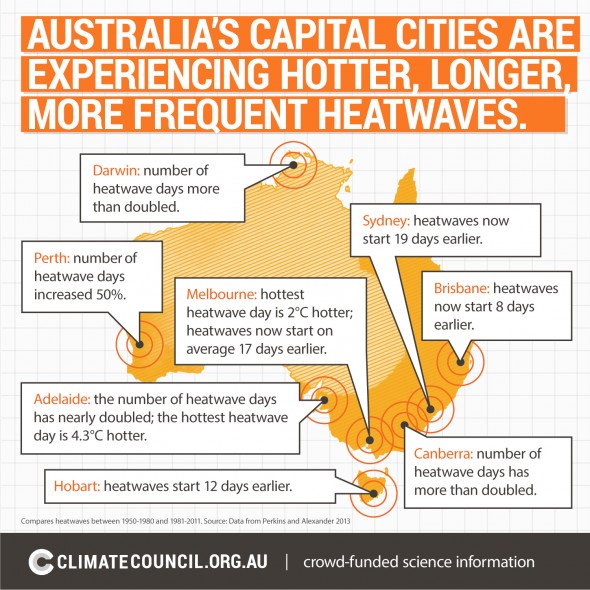How climate change affects your health

There’s a Chinese curse that says “may you live in interesting times” and when it comes to our natural environment, these days sure are intriguing. As our climate changes at breakneck speed, we’re experiencing more floods, droughts and other “extreme weather events” than any time in human history, and it’s us 60-somethings, along with the very young and the infirm, who will be most vulnerable to the effects of climate change as we age.
The Intergovernmental Panel on Climate Change in its latest report said, “Older people are at greater risk from storms, floods, heatwaves and other extreme events, in part because they tend to be less mobile than younger adults and so find it more difficult to avoid hazardous situations, and also because they are more likely to live alone. Older people are also more likely to suffer from health conditions that limit the body’s ability to respond to stressors such as heat and air pollution”/
The most pressing health concern related to climate change and older people is heatwave, also known as the “silent killer”. The heatwave that led to the Black Saturday fires is attributed to 374 deaths (twice as many as the fires themselves) and saw an increase of 46 per cent of hospital emergency cases across Victoria. In 2003, the heatwave that engulfed Europe caused an estimated 148,000 deaths in France, the majority (70 per cent) being people over 75.
Already the incidence of unusually high-heat days in Australia has doubled over the past 50 years, and predictions are heatwaves will occur twice as often, last for longer and reach higher temperatures by 2030.
Direct effects of heatwave include heatstroke and exhaustion, falls and other accidents caused by dehydration, respiratory illnesses related to air pollution, gastroenteritis and the exacerbation of existing cardiac conditions. A Climate Council report also found the logistical challenges of getting help during heatwaves was a factor for older people living in rural areas.
During heatwaves, transport, roads and other infrastructure can be affected, impacting food and water supplies. Electricity service can also be disrupted leaving people without lights and air-conditioning. All these factors, combined with limited mobility, compound the effects of heatwaves on older Australians.
Another concern is infectious diseases, which will thrive in a hotter climate with more people living closer together. These include mosquito-borne diseases like dengue and chikungunya; water- and food-borne diseases such as salmonella, giardia and cholera; the flu and whooping cough.
And one issue that must not be overlooked is the impacts of climate change on mental health. Extreme weather events can cause trauma and anxiety, while prolonged experiences such as drought are associated with chronic psychological distress and an increase rate of suicide. The IPCC report also refers to a sense of loss, known as ‘solastalgia’, which people experience when their land is damaged and they lose opportunity.
AMA: preparation and prevention is the cure
A new report by Australia’s top scientists, and endorsed by the Australian Medical Association, has urged the Government to show leadership on climate change to help curtail the risks to health now and in the future.
The reports advises policy makers to:
- identify those most vulnerable to the effects of climate change;
- prepare for the forecasted health impacts, starting with reseaech on how climate change will affect vulnerable people, particularly the frail and elderly;
- communicate the dangers to all people, and give advice on actions that can be taken;
- reduce emissions urgently.
Were you aware of the health impacts of climate change? Is our government taking it seriously?









 Proudly Australian owned and operated
Proudly Australian owned and operated